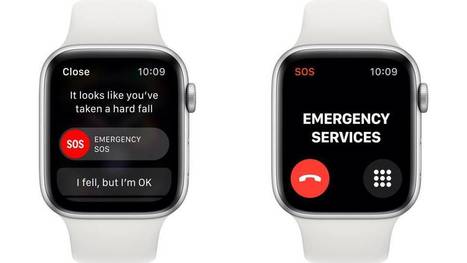Thousands of therapists are providing Tele-services to their patients during the covid imposed lockdown using video-enabled platforms like Zoom, Skype, Google Meet, etc.
Many of them hadn’t intended to ever take the online route, however, a number of them are now discovering the ease of use and the convenience of it, both for themselves and for their patients.
While the technological tools available for mental health professionals and patients has dramatically improved over the past decade, those transitioning to online services rapidly need to hold a few things in mind.
It’s not the same as in-person therapy
While online psychotherapy has been shown to be just as effective as in-person care, the delivery of psychotherapy via telehealth requires skills that in-person therapy does not.
Because the skill set for online consults is different, therapists typically need additional training in telehealth. The amount of training can/will vary depending on the skills of each person. As the technology continues to get more user-friendly, the amount of training needed becomes less.
The legal considerations have changed, but not in the ways some therapists think
The Department of Health and Human Services is using its enforcement discretion to allow providers to use video-calling platforms, such as Zoom and Facebook Messenger, that are not compliant with HIPAA privacy rules. The Centers for Medicare and Medicaid Services have also loosened geographic restrictions on telehealth provision. But both of these moves have been widely misunderstood, and they are only temporary in nature.
Ethical standards haven’t changed
Certainly, many therapists had to switch to telehealth quickly and may have done so even without initial training in order to ensure continuity of care to at-risk clients. In the event of a complaint, ethics committees would likely take such factors into consideration. But therapists who have not been trained in telehealth and whose clients have not provided informed consent specific to telehealth should do so as quickly as possible.
Therapist fears about negative impacts haven’t been supported by research
While telehealth needs to be entered into thoughtfully, many of the reasons therapists have traditionally given for their resistance to telehealth simply haven’t shown up. For example, therapists often point to the eye contact issue described above and express concern that building a therapeutic relationship is harder online. Research hasn’t supported this idea.
While therapists are sometimes less satisfied with the therapeutic relationship in telehealth, clients show no difference – and in some studies actually feel a stronger alliance in online care.
Mistakes are common and avoidable
Some steps one can take to avoid common mistakes include:
– Choose a secure telehealth platform that offers a Business Associate Agreement stipulating who has access to confidential information and how it can be used
– Learn the platform well, and practice using it with a friend or colleague to test all of its features
– Understand the legal requirements surrounding telehealth in your state, and complete any state-mandated training
– Always get client consent before sending private client information via an unsecured email
– Review your telehealth technology and data security practices at least annually.
read the original article at https://hitconsultant.net/2020/06/12/what-therapists-need-to-know-about-telehealth-technology/#.XuYlqmozZPt



 Your new post is loading...
Your new post is loading...










TeleHealth has always been considered well suited to a Technology based intervention, and patients have always been open to it. At Plus91 we have always found mental health professionals sitting on the fence when it came to online and mobile consultations. Many of them find it a logically good choice but are unsure of adopting it "at this time" and would explore it sometime int he future. But the covid pandemic changed that. As many of my doctor friends say now, this is so much easier than I had imagined.